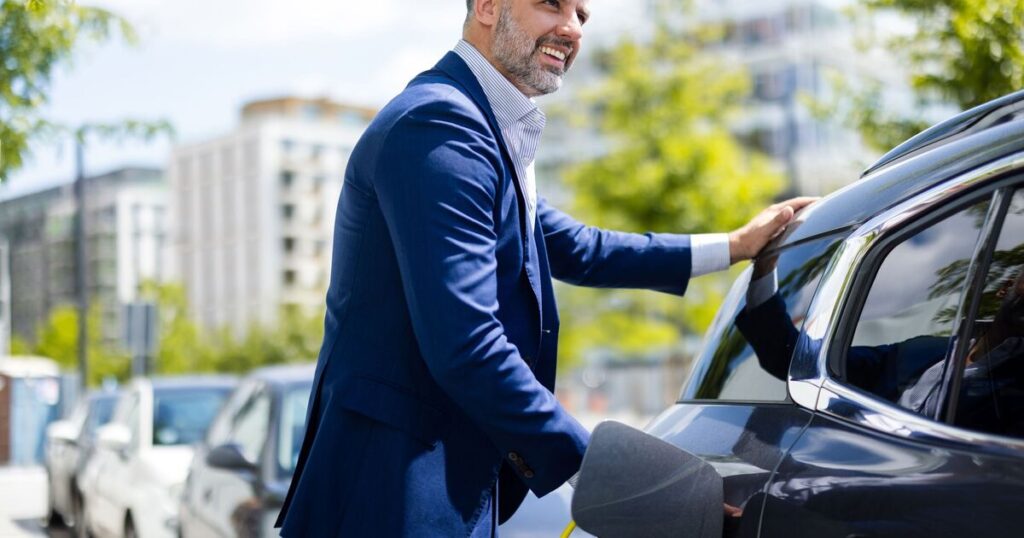
Drivers could save up to £1,500 a year on running costs under a new £63million Government plan to accelerate the UK’s electric car revolution.
The move will be welcomed by people switching to battery vehicles, but critics have questioned whether taxpayers should be footing the bill when the nation’s finances are under strain.
The initiative, part of the Government’s wider “Plan for Change,” promises to make charging easier and cheaper for families without a driveway, allowing more people to plug in from home using cheaper electricity rates – even from the pavement.
Transport Secretary Heidi Alexander said: “We are making it easier and cheaper to own an electric vehicle.
« We know access to charging is a barrier for people thinking of making the switch, so we are tackling that head on so that everyone – whether or not they have a driveway – can access the benefits of going electric.
“This is what our Plan for Change mission to kickstart Britain’s economy looks like in practice.
« We’re not just boosting charging infrastructure, we’re building a fairer, cleaner future where every family can benefit from cheaper, greener transport, whilst creating thousands of good jobs across the country.”
Of the £63million pot, £25million will go to local authorities to roll out so-called “cross-pavement” charging tech, allowing cables to be safely routed from homes to cars parked on the street. This could let families charge at home rates as low as 2p per mile – a fraction of the cost of petrol or diesel.
Government figures suggest that households able to make the switch could save as much as £1,500 annually on motoring bills.
In a further boost for drivers, ministers are overhauling roadside signage to better highlight EV charging hubs, many of which are currently “hidden in plain sight”, according to motoring groups.
Edmund King, President of the AA, welcomed the change: “There are more public chargers than people realise, but they are often hidden in plain sight. Increasing signs for the public network is vital to help the EV transition as it will create confidence for drivers both now and in the future. It is great to see more support for those without off-street parking so that they can also benefit from the EV revolution.”
Matas Buzelis, car expert at vehicle history platform carVertical, described the plan as a “win for consumers and the environment”.
He said: “The EV is without a doubt the future so this move by the Government makes sense and should be applauded.
« Many people living in urban environments, especially in big cities, don’t have driveways and their dream of buying an EV often ends right there. If this initiative overcomes the practical hurdles of EV ownership and boosts the charging infrastructure, it’s a win for consumers and a win for the environment.”
Samuel Mather-Holgate, Independent Financial Adviser at Mather and Murray Financial, told Newspage that charging infrastructure is still the missing piece.
“Until charging is quicker and easier, consumers won’t switch in the numbers needed to make a difference, which will incentivise manufacturers,” he said.
However, not everyone is convinced. Scott Gallacher, Director at financial firm Rowley Turton, warned the money may be misdirected.
He said: “On the face of it, it’s a great idea. EVs are undoubtedly the future. I’m on my second electric car, first a Tesla and now a BMW i5, and while I have access to charging both at home and work, I know lack of charging options is a major barrier for many people. So this initiative is very welcome.
“EVs are cheaper to run and improve local air quality, which is good for both the environment and household budgets.
« However, my big questions are: will this scheme be enough, how many households will it realistically help, and should the Government be subsidising those who can already afford a new car, especially when the public finances have a huge black hole?”
